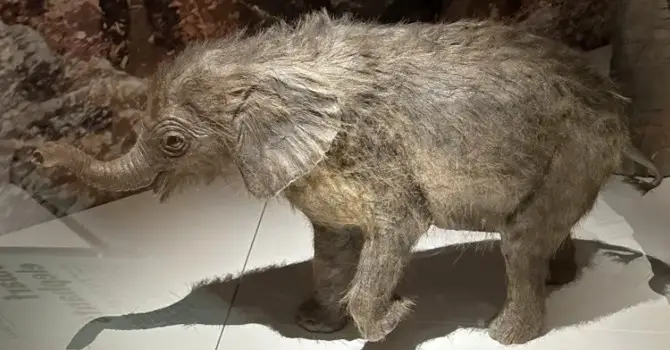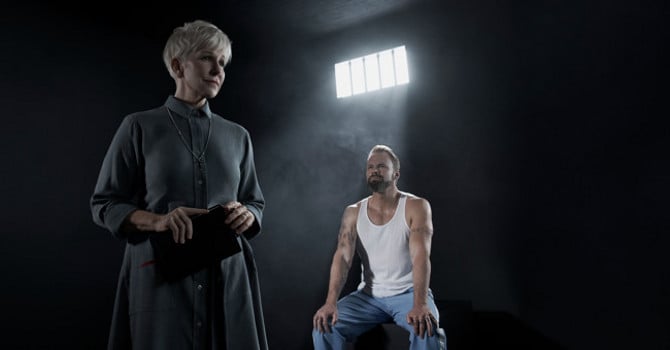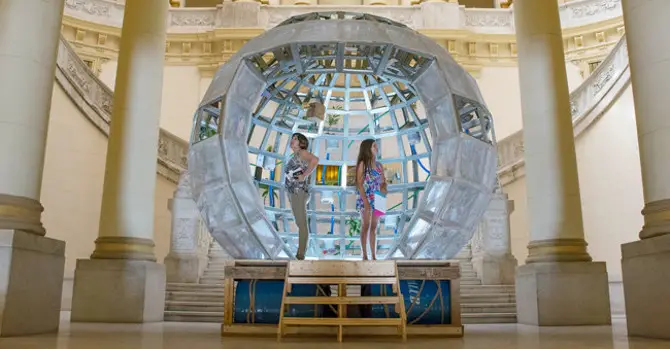Set against the tumultuous political backdrop of 20th-century America, Oscar-nominated director Lee Daniels’ (Precious) epic historical drama and love story The Butler (The Weinstein Company) puts him at the head of the line for SAG, Golden Globe, Oscar and just about every other award nomination. In fact, he might as well start writing some acceptance speeches.
Inspired by Wil Haygood’s 2008 Washington Post article “A Butler Well-Served by This Election,” chronicling 89-year-old Eugene Allen’s decades of White House service from 1957–1986, the much-embellished film recounts the life of Cecil Gaines, a former slave from Georgia’s cotton fields, and his path to freedom and, eventually, his butlering through seven presidential administrations to his ultimate reward: seeing an African American elected President of the United States.
The blistering, often raw screenplay is by Emmy winner and Golden Globe nominee Danny Strong (actor, younger years, Noogie on Saved by the Bell, later Buffy, the Vampire Slayer, later Mad Men; as writer: HBO’s political specials Game Change, Recount; current, The Hunger Games two-part finale Mockingjay).

Director Lee Daniels on set in New Orleans
The Butler is not only a vivid history lesson of the struggles of African Americans to be accepted as human beings and have rights long-promised from Lincoln onward – rights enacted into law, but not abided by even well into the 60s and beyond – but is also a love story of a husband and wife, rife with all the ups-and-down of life.
Daniels’ film, with astonishing performances by Oscar winner Forest Whitaker and Oscar nominee and celebrated TV producer Oprah Winfrey, returning to the screen for the first time since her Sethe in 1998’s Beloved, is filled with the everyday drama and tragedy (and then some) we experience, no matter our skin color.


Oprah Winfrey
Whitaker’s Cecil Gaines becomes a firsthand but silent witness to history, evolving social change, and the inner workings of the White House, where equality if preached, but not practiced. He’s the ultimate insider to the lives and foibles of presidents, but never a real insider. In his job, he’s not seen or heard, nor a listener to some of the nation’s most pivotal events – and the men in power behind them.
Winfrey is a revelation in her portrayal of his wife Gloria, unhappy with the status quo and grappling with a loneliness that leads to heavy drinking as Cecil works longer and longer hours.
While living what many might perceive as a charmed, middle-class life (comfortable home, auto, private schools, nice clothing), they contend with the rebellious spirit of older headstrong, anti-establishment son Louis (David Oyelowo), whose tenacious hunger for activism and equal rights puts him on the front line of protests at lunch counters, with Freedom Riders and Dr. King; and eventually Malcolm X and the Black Panthers.

President Eisenhower (Robin Williams) is served by butler (Forest Whitaker)
Daniels and Whitaker are shoo-ins for award nods. I didn’t think Cate Blanchett, with her own amazing performance in Woody Allen’s Blue Jasmine, would have any competition for a Golden Globe and Oscar, but Winfrey has heated things up.
Co-stars Oyelowo and Oscar winner Cuba Gooding, Jr. (so terrific now on Broadway in the hit revival of The Trip to Bountiful) as the White House chief butler, his best film role in years, no doubt will receive featured/supporting nods.
Don’t believe Daniels when he modestly says, “I don’t pretend to be the ‘director.’ I’m simply the puppeteer. I yell, ‘Action,’ get the shot, then I yell, ‘Next.’ I’m flawed and let everyone know. I don’t pretend to be something I’m not and don’t want the actors to. Just be real, be honest; give me unvarnished truth.”
Yes, there’s more than he lets on. Look at the cast he attracted: Mariah Carey (in a don’t-blink-your-eyes-or-you’ll-miss-her cameo; and she says nothing and doesn’t constantly play with her hair!), John Cusack (as Nixon), Jane Fonda (Nancy Reagan), Gooding, Terrence Howard (horny next-door neighbor), rock star Lenny Kravitz (who worked with Daniels in Precious), Tony winner Adriane Lenox (Howard’s wife) , James Marsden (JFK), Vanessa Redgrave (another don’t-blink-your-eyes cameo), Alan Rickman (riveting as Ronald Reagan), Liev Schreiber (hilarious as LBJ), and Robin Williams (Ike). The roster of stars kept growing, with, as Daniels noted, “some turning down jobs and all working for peanuts.”

The Kennedys arrive: Minka Kelly, James Marsden, and, far right, Forest Whitaker
Casting the roles of the presidents was most difficult. “I didn’t want audiences to look at actors playing them. I wanted the actors to disappear, and especially not make them caricatures. My take was to approach them as men, have them be human. I want audiences, whatever their party, to feel the weight of the world on them. Agree or disagree, they were doing the best they could to serve our country.”
His actors claim Daniels is a screamer. “He holds you to account no matter what or who you are,” says one. “He lets you know when he needs something more by getting in your face after a take and yelling, ‘Fake, fake, fake! Cut!’”
“True,” says Daniels, “but it comes from the heart. I love my actors and get excited about every one of them. To get an outstanding performance, you have to spend time with your actors, but it always starts with the word. They’ve read a million scripts, so they know the truth when they see it. You have to be not only on the same page, but on the same syllable. Time is money and money we didn’t have a lot of, so it was very difficult. We had trail mix and M&Ms. Not fancy star trailers. But, I’m so pleased to say, the actors really had a love affair with the film.” Incredibly, considering the scope of it, The Butler was made in 41 shooting days.

The butler who served several decades gets invited with his wife to a Reagan era state dinner.
The Philadelphia-born director, 53, left film school to form a successful nursing agency, which he later sold and went into casting. He and then-partner, veteran casting director Billy Hopkins, adopted Daniels' biological niece and nephew. The couple separated, but obviously have remained friends since Hopkins is co-casting director for The Butler (with Daniels’ sister Leah, a major casting director). (Since 2009, Daniels has been partnered with insurance actuary Andy Sforzini, who was an associate producer on Precious.)
His journey to who he is was long and painful. It’s not for nothing that The Butler’s sub-plot focuses on the turbulent and heart-breaking relationship between a father and son. “Father and son coming together after a tumultuous past is reminiscent of many dreams where I wished my father was alive so we could reunite.”
Daniels candidly explained how he desperately wanted acceptance from his father, policeman William Beau Daniels, killed in 1975 during a robbery while off duty. “We were just starting to be friends,” he says, swelling with tears. “He was considered a hero, but I knew a different man. He died the way he lived — tragically.”
From early childhood, according to an aunt, “Lenny” wasn’t the man his father wanted. “He wanted Lenny to be tough. He cracked the whip, was verbally cruel.” He tried to get his son into boxing and other sports.
“There was little emotional understanding,” recalls Daniels. “He bullied and called me names.” It didn’t stop there. “He beat me. He could have gone to jail for what he did. One time, when he caught me in Mom’s red patent-leather high heels, he really gave it to me. I know he loved me. He wanted me to be a man who’s strong and could attack the world. He thought I wouldn’t survive as a gay black man. I hope he’d be proud of me.”
Actually, he observes, his father succeeded. “Being told you’re nothing makes you what you are. He made me tough. That doesn’t justify his behavior. But I never give up. Never ever, ever! And I’ve been able to use those experiences to do what I do.”
Being able to get The Butler made is proof enough.
Producers were approached, studios signed on, then signed off, stating, “This story can’t be turned into a film.” Late A-Line producer, Laura Ziskin, had unparalleled faith and wanted Daniels to direct. Still nothing – even with his success as co-producer of Marc Foster’s Monster’s Ball (netting an Oscar for Halle Berry), producing (with Winfrey) and directing the Oscar-nominated Precious, which netted him an Oscar nod (and an Oscar for Mo’Nique, and a nod for Gabourey Sidibe), and his sordid, seedy The Paperboy, which attracted a cult audience.
The only way was to go indie. Even as her cancer advanced, Ms. Ziskin sought investors. Fifty shared her vision. Among those are Black Entertainment Television network’s Sheila Johnson (also Jet magazine).
“Laura was unstoppable,” laughs Daniels. “One day, as ill as she was, she was heading to the airport. I thought she was flying home for a rest, but she’d been contacted by a black woman who’d just won the lottery and wanted to invest. I couldn’t believe her. She told me she was just learning from me. Days later, Laura went into a coma, and that was it.” (She passed away in June, 2012.)
Asked how he would like to be remembered, Daniels answers, “As someone who stood for civil rights, and not just for African Americans or gay Americans – as someone who stood for telling the truth.”





